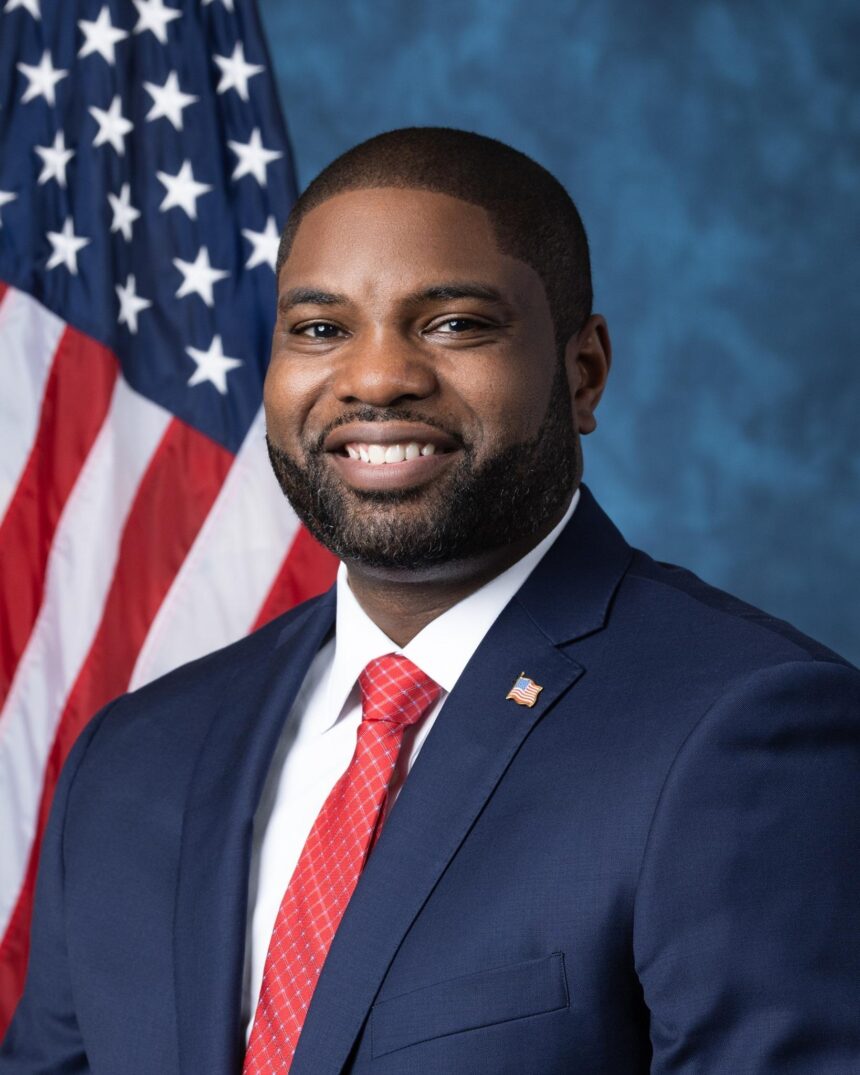Republican Congressman Byron Donalds has reintroduced a controversial bill aimed at overriding local government authority on crime policy in Washington, D.C. The move comes as former President Donald Trump renews calls for tough-on-crime measures in the nation’s capital. The legislation, which seeks to impose federal controls over the D.C. Council’s approach to public safety, has reignited debates over local autonomy and federal intervention in the city’s governance.
Byron Donalds Pushes DC Crime Bill Aimed at Overriding Local Council Authority
Representative Byron Donalds has reintroduced legislation targeting crime reduction in Washington, DC, with a focus on limiting the control of the local council over law enforcement policies. The bill proposes to centralize certain public safety powers by allowing federal authorities to intervene directly, effectively circumventing decisions made by the DC Council. This move aligns with recent calls from former President Donald Trump, who has advocated for stronger federal involvement in combating crime rates in the nation’s capital.
The proposed bill includes several key provisions designed to enhance public safety measures, including:
- Establishing a federally appointed public safety officer with veto power over local council decisions.
- Allocating federal funding contingent upon the adoption of stricter crime enforcement policies.
- Creating oversight mechanisms to ensure compliance with new standards.
| Provision | Impact | Status |
|---|---|---|
| Federal Public Safety Officer | Overrides Local Decisions | Proposed |
| Conditional Federal Funding | Incentivizes Policy Changes | Proposed |
| Oversight Committee | Monitors Enforcement | Planned |
Analyzing the Impact of Federal Intervention on DC Crime Legislation
The renewed federal effort to impose crime legislation on the District of Columbia by bypassing the local council highlights a contentious dynamic between national authority and municipal autonomy. Proponents argue that federal intervention is necessary to address rising crime rates and to establish uniform standards across jurisdictions, particularly in the nation’s capital where local governance has been perceived by some as lenient. Critics, however, contend that such actions undermine the democratic process and the self-governance rights of DC residents, pointing to the importance of allowing locally elected representatives to shape policies responding to their community’s distinct needs.
Key factors influencing this debate include:
- Jurisdictional authority: Balancing federal oversight with local legislative powers.
- Crime statistics: Assessing trends to justify legislative urgency.
- Public safety vs.civil rights: Navigating enforcement with constitutional protections.
- Political motivations: The impact of partisan agendas in shaping policy.
| Aspect | Federal Intervention | Local Council |
|---|---|---|
| Legislative Control | Direct Override | Autonomous |
| Accountability | Congressional Oversight | Resident Portrayal |
| Policy Tailoring | Uniform Approach | Community Specific |
| Public Reception | Mixed Support | Generally Local Support |
Examining the Influence of Trump’s Support on the Bill’s Momentum
The backing of former President Donald Trump has undeniably provided a critically important boost to the bill’s traction within conservative circles and beyond. Trump’s vocal endorsement has galvanized a coalition eager to see swift federal intervention in District of Columbia’s policing policies, positioning the legislation as a centerpiece of a broader law-and-order agenda. This support has translated into increased media coverage and political conversations, pressuring lawmakers who may have previously been reluctant to challenge the autonomy of the D.C. Council.
However, the momentum is met with sharply divided opinions, as critics argue that Trump’s involvement politicizes an issue that demands nuanced deliberation. The dynamic has created a complex legislative surroundings where support for the bill frequently enough aligns with broader partisan identities rather than solely focusing on the crime policy issues at stake.
| Factor | Impact on Bill’s Momentum |
|---|---|
| Trump’s Endorsement | Amplified media attention and energized supporters |
| Party Polarization | Heightened divide reducing bipartisan support |
| Public Perception | Polarized views along ideological lines |
- Mobilization of Conservative Lawmakers driven by Trump’s call
- Heightened scrutiny from local D.C. leaders protective of autonomy
- Increased activism from both supporters and opponents nationwide
Recommendations for Balancing Federal Oversight with Local Governance Rights
To effectively balance federal oversight with the autonomy of local governance, lawmakers should prioritize collaborative frameworks where federal mandates are designed in consultation with local authorities. This approach ensures policies are tailored to address specific community needs while respecting the unique legal and cultural landscapes of cities like Washington, D.C. Additionally, setting clear criteria for federal intervention—such as thresholds related to public safety or civil rights violations—can provide objective standards that justify temporary federal oversight without undermining local authority.
Key factors to include in such frameworks involve:
- Regular communication channels between federal and local officials
- Defined sunset clauses on federal measures
- Incorporation of community feedback mechanisms
- Joint oversight committees ensuring accountability
A comparative outline below highlights potential checks and balances to harmonize federal and local roles in crime legislation:
| Aspect | Federal Oversight | Local Governance Rights |
|---|---|---|
| Authority Scope | Temporary,issue-specific interventions | Broad,ongoing self-governance |
| Decision-Making | Guided by national security/public order | Based on local context and priorities |
| Accountability | Congressional and judicial review | Community engagement and local elections |
By implementing such checks,policymakers can avoid the pitfalls of excessive federal dominance while ensuring critical federal intervention remains a tool for safeguarding justice and safety where local systems face challenges.
To Conclude
As Byron Donalds reintroduces the controversial DC crime bill amid escalating tensions fueled by former President Trump’s calls, the debate over federal intervention versus local autonomy is set to intensify. The coming weeks will reveal whether Congress will side with efforts to override Washington’s local council or uphold the district’s self-governance, marking a pivotal moment in the ongoing conversation about crime, politics, and jurisdiction in the nation’s capital.
